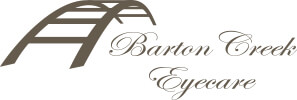
Frequently Asked Questions with Dr. Robert Soltys
1. Q: We hear a lot about “seeing your eye doctor regularly.” In school-aged children, ages 5 through 17, what does regularly mean?
- A: At least once a year, likely more often if patient is high hyperopia or has accommodative or binocular vision problems.
2. Q: Are there signs parents should look for that would indicate a trip the optometrist is necessary?
- A: Skipping or re-reading lines has trouble with school work or reading, takes longer to do Homework, short attention span, trouble with up close work.
3. Q: What about preschoolers? Since many children may be too young to read, how is an eye exam conducted if they cannot read a Snellen chart?
- A: Tumbling E chart or symbols chart are objective ways of testing and measuring RX.
4. Q: One of the greatest tasks of a school-aged child is learning to read and in older children, the amount of reading required. What should parents be on the lookout for concerning their child’s reading and potential vision problems?
- A: See Question 2.
5. Q: We often discuss vision problems as they relate to sitting in a classroom, but what about the playground or vision acuity’s effect on socialization and play?
- A: Hand eye coordination – pursuits being able to effectively track large objects like balls.
6. Q: Today it seems that many children are very quickly diagnosed as learning disabled or dyslexic. How does vision play into the problems and what are the differences?
- A: 1 in 10 children has vision problems that impact on learning many incorrectly diagnosis when they may have binocular vision disorder.
7. Q: We have many choices today correct our vision. What do you recommend as the earliest age for contact lenses?
- A: When a child is responsible and mature enough to understand using a medical device and follow instructions.
8. Q: Vision Therapy appears to be making a comeback and is being utilized by some students to address their vision problems. Can you talk about vision therapy and when it is right for your child?
- A: Individualized progressive visual enhancement programs conducted in and out of office with sessions done bi-weekly and Homework done daily by the patient. This helps patients develop visual skills that are fundamental to learning and they are able to accurately and effectively participate in the classroom, in sports and in life. This adapts how a child or adult process visual information.
Pediatric Optometrist Austin Texas
If you have any questions regarding children’s vision care, or want to schedule an eye doctor’s appointment:
